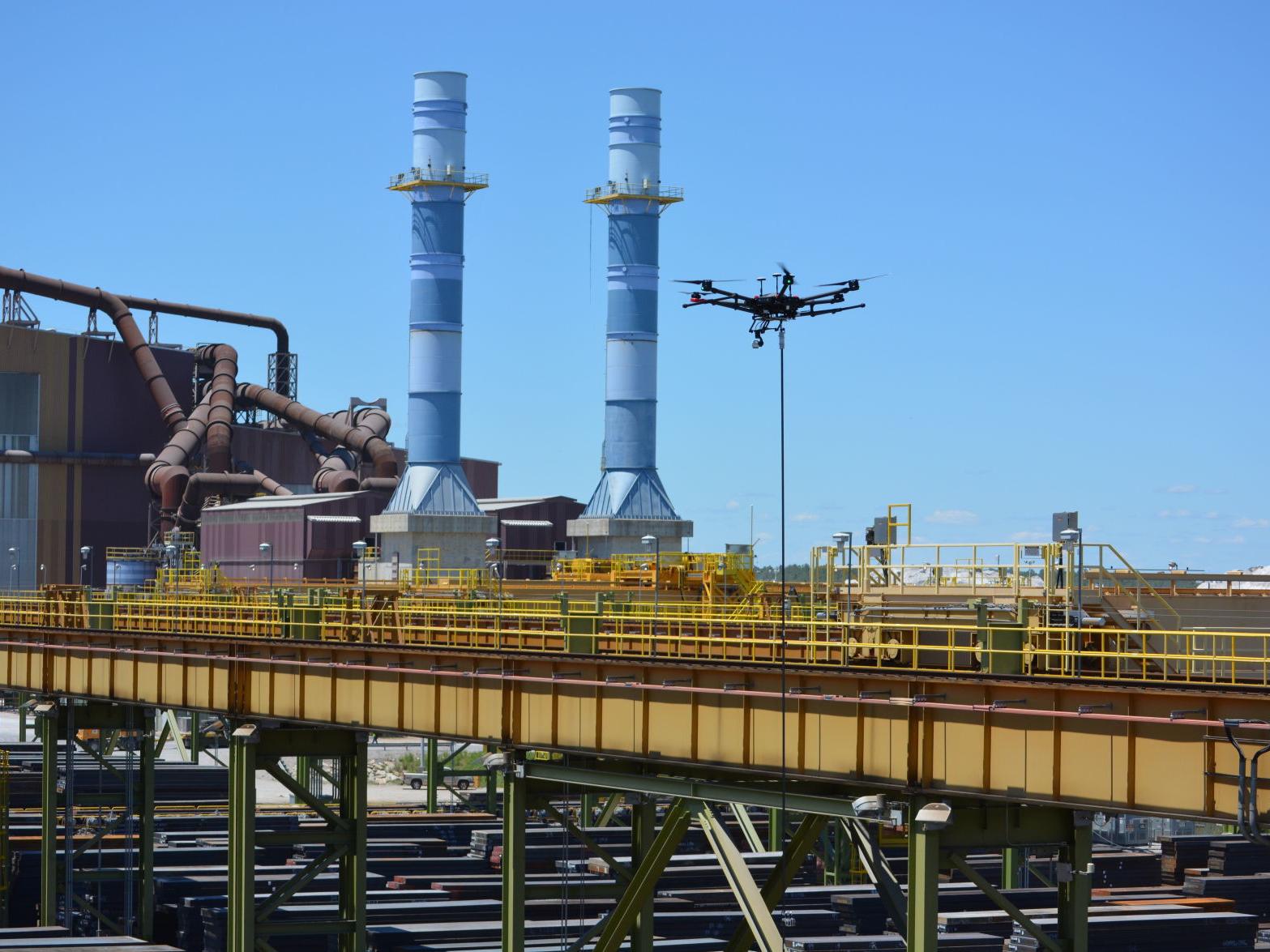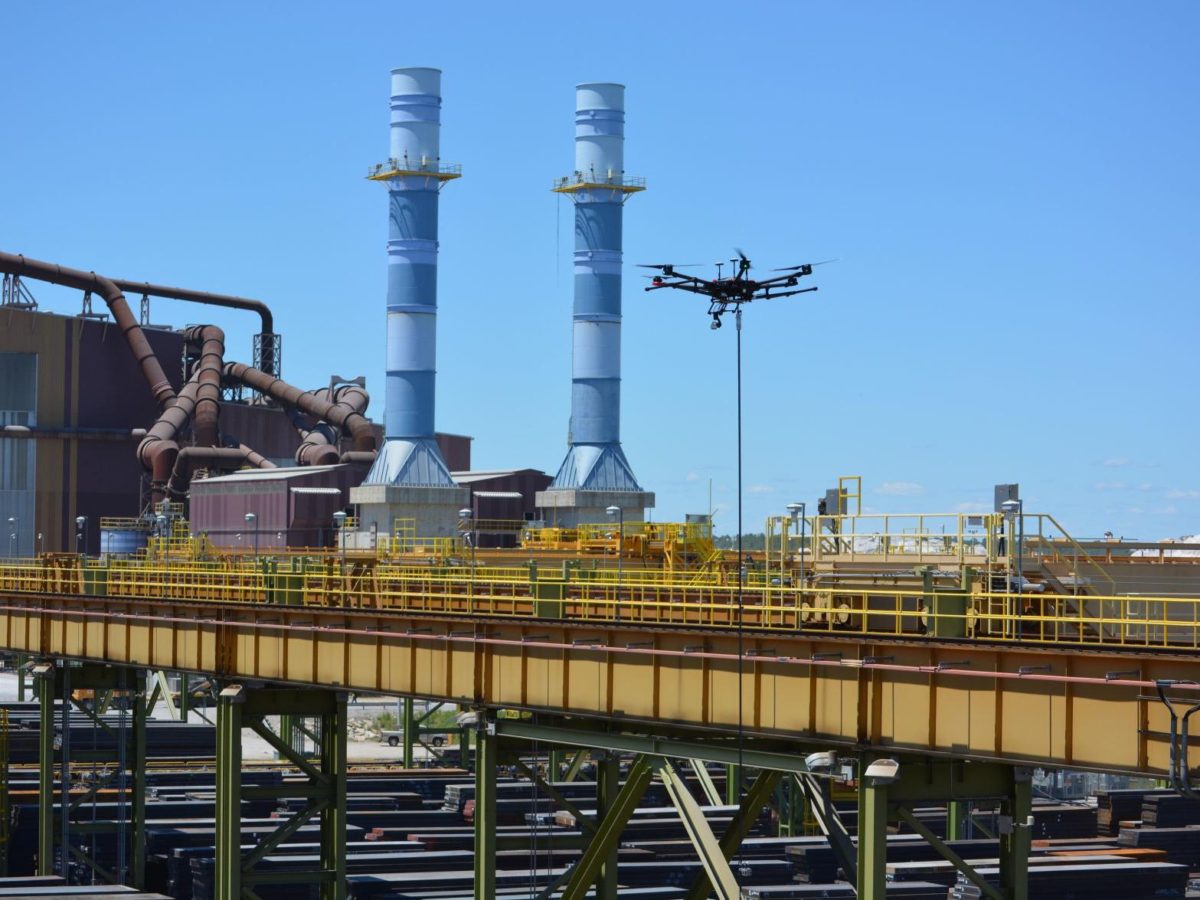Introduction
A Drone is a type of aircraft without a human pilot. They carry sensors, electronic transmitters, and target designators. They offer greater range and endurance. Modern drones are undetectable because of their size and soundless engines. Drone services provide reliable wireless communication for effective control and surveillance.
Drones are used in many industries ranging from construction to manufacturing, chemical, oil and gas, and commercial sectors. They are efficient and can reach hazardous or unreachable areas in need of scrutiny. They can assist in rescue operations, give a warning to law enforcement during terrorist situations, work in the most extreme climates or act as a photographer’s tool, monitor traffic and weather, and help with agriculture. Drones are used for observation, surveys, digital data gathering, and tactical planning. They’re fitted with high-precision cameras that navigate, take pictures and allow us to perform image and structural analysis.
A drone’s autonomy level can range from remotely piloted to advanced autonomy. They rely on sensors and LIDAR detectors to calculate their movements. Drones can travel varying heights and distances. Very close-range drones travel up to three miles, close-range drones up to 30 miles, short-range drones 90 miles, and mid-range drones can travel up to 400 miles. The longest-range drones are called ‘endurance’ drones and can go beyond 400-mile distance and up to 3000 feet in the air.
Advantages of Drones
- Aerial Imaging
Drones take exceptionally high-quality aerial photographs and videos. They collect large volumes of imaging data and create 3D maps and interactive models for analysis. 3D mapping is important in case of damages or hazardous situations.
- Precision
Drones use GPS (the Global Positioning System) so they can be programmed and guided accurately to precise locations. For example, in Precision Agriculture, drones are employed to fulfil a variety of farming needs like spraying pesticides, spraying fertilizer, monitoring crop health, crop damage, field soil analysis, etc. This helps conserve both time and cost.
- Easily Deployable
Drones can be deployed and operated with relatively minimal technical experience because of advancements in control technology. They have a greater range of movement and can navigate gracefully through traditionally inaccessible areas. Because of an extensive range of low-cost models, drones are available to a wide range of operators.
- Minimizes Health Risks and Danger
Drones monitor locations, communicate probable dangers, and notify the operator. They conduct security inspections in complicated constructions like oil and gas refineries, pipelines, and flare stacks. Drones are less risky and eliminate injuries and health problems in hostile environments for radiation monitoring and inspecting high-voltage lines.
- Little to Zero System Downtime
Manual inspections often require equipment shut down to avoid system damage or injuries to the inspection personnel. Drones can safely inspect complex systems during operations, so it does not interfere with production. This saves time and cost spent to erect ladders, aerial lifts, or build stages.
SES Digital Drone Services
SES Digital offers drone services to conduct topographic surveys through 3D models, Ortho mosaic, Digital Surface Model, Digital Terrain Model, Digital Elevation Model, and CONTOUR MAPS with centimetre-level accuracy. This reduces field time and survey cost, maps otherwise inaccessible areas, and provides accurate data. We perform inspections in confined spaces of chemical plants, chimneys, storage tanks, crude oil tanks, and refineries by reducing entry for manual inspection to strictly unavoidable circumstances.
We also operate power-line, wind turbine, solar panel, bridge, railway track, and cell tower inspections, etc. SES Digital’s services range from drone survey, land survey, slope monitoring, LIDAR, contours, Stockpile Volumetric Analysis, and urban planning. Our high-end drone surveying allows us to gather data 10x faster than traditional methods. We use machine learning, artificial intelligence, and comprehensive surveying and mapping to generate 99% precise volumetric measurements, crop yield estimation, and damage detection. We provide services across multiple industries like oil and gas, chemicals, infrastructure and utilities, power generation, engineering and construction, and mining.
Conclusion
Drones have a wide range of applications because of their types and versatility. Many industries like chemical, oil and gas, manufacturing, mining, commercial, etc. are adapting to drone technology. Drones have also been integrating with our daily lives rapidly. They’re a necessary tool to enhance our lives. Hence, now might be the time to get used to drones flying around doing even our regular outside work.


